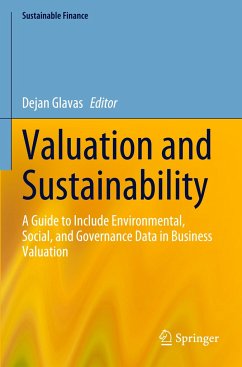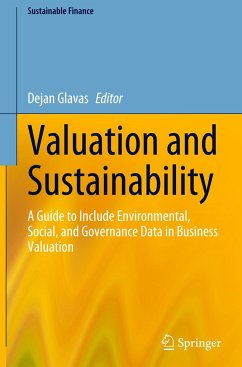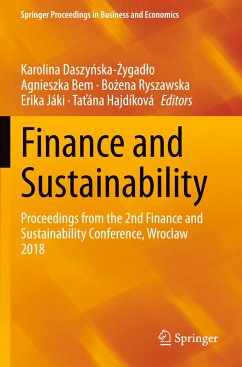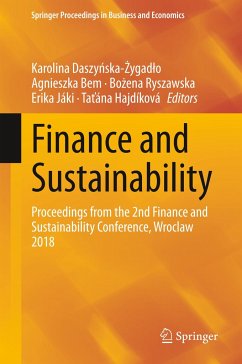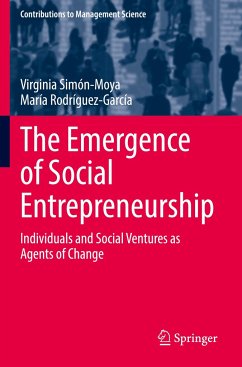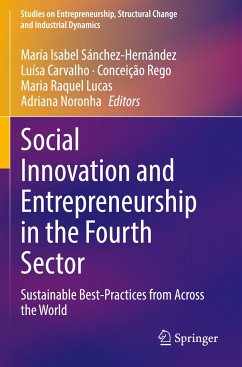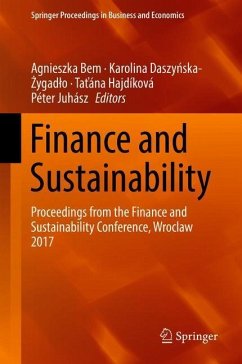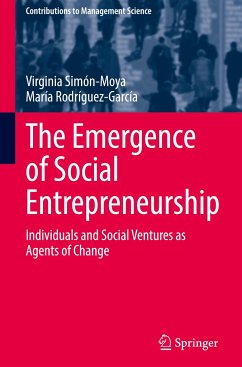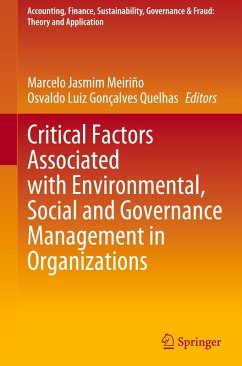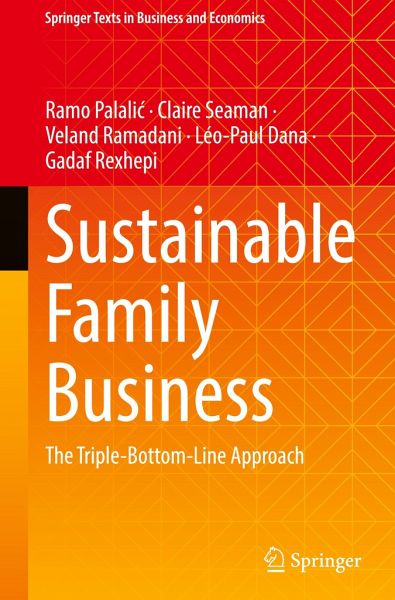
Sustainable Family Business
The Triple-Bottom-Line Approach

PAYBACK Punkte
42 °P sammeln!
This book introduces a 'triple-bottom-line' approach to the concept and practice of family business sustainability. It is geared towards a broad audience covering social, economic, and environmental issues, to focus on implementation of sustainable practices. Having this in mind, this book provides possible ways of successfully managing family businesses in a sustainable manner, which should also lead to long-term business longevity.The social perspectives addressed by this book discuss the social responsibility of the family business, using a two-way approach contributing to the development o...
This book introduces a 'triple-bottom-line' approach to the concept and practice of family business sustainability. It is geared towards a broad audience covering social, economic, and environmental issues, to focus on implementation of sustainable practices. Having this in mind, this book provides possible ways of successfully managing family businesses in a sustainable manner, which should also lead to long-term business longevity.
The social perspectives addressed by this book discuss the social responsibility of the family business, using a two-way approach contributing to the development of society. The economic outlook is introduced by aiming at a sustainable competitive advantage with an economic impact, and how a family business should adapt to changes and be proactive to gain economic sustainability. The environmental dimension is focused on actions against global warming and global agreements aimed at businesses to change their policies to prioritize the environment as part of their strategy. This book thus explores possibilities for family firms to add values along all chains in business activities and to contribute to introducing green environment products, or environmentally safe products.
Each part of the book represents an important pillar of the family business unit that helps the firm to achieve and sustain its competitive advantage using the triple-bottom-line approach. Besides the objectives and the content, each chapter provides one short story applicable to a chapter's content and a case study for each chapter or topic. As learning tools besides case studies, the book provides key summaries, terminology, group assignments, and projects.
The social perspectives addressed by this book discuss the social responsibility of the family business, using a two-way approach contributing to the development of society. The economic outlook is introduced by aiming at a sustainable competitive advantage with an economic impact, and how a family business should adapt to changes and be proactive to gain economic sustainability. The environmental dimension is focused on actions against global warming and global agreements aimed at businesses to change their policies to prioritize the environment as part of their strategy. This book thus explores possibilities for family firms to add values along all chains in business activities and to contribute to introducing green environment products, or environmentally safe products.
Each part of the book represents an important pillar of the family business unit that helps the firm to achieve and sustain its competitive advantage using the triple-bottom-line approach. Besides the objectives and the content, each chapter provides one short story applicable to a chapter's content and a case study for each chapter or topic. As learning tools besides case studies, the book provides key summaries, terminology, group assignments, and projects.





